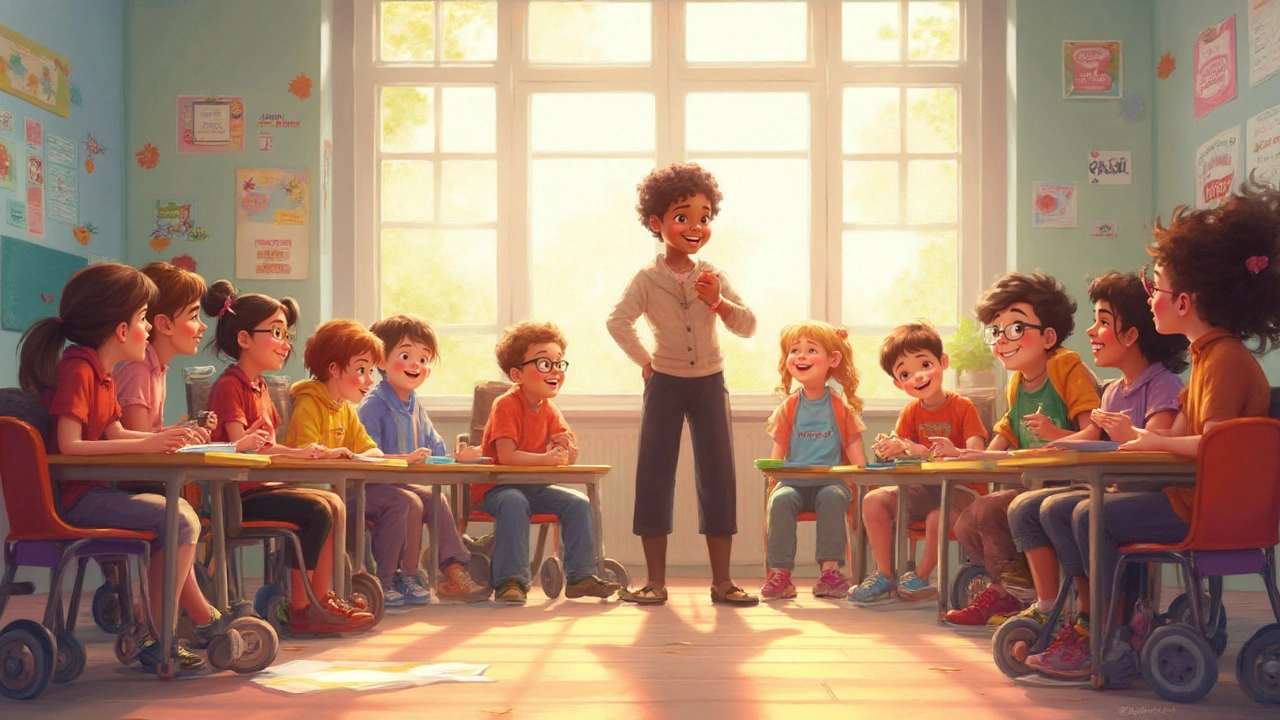Polite Term: Simple Ways to Use Respectful Language at School
Ever notice how a simple "please" or "thank you" can change the mood in a classroom? Using polite terms isn’t just good manners – it actually helps kids feel safe, focused, and ready to learn. Below you’ll find why respectful language matters and some quick habits you can start today.
Why Polite Terms Matter
When students hear kind words, they are more likely to listen and cooperate. A study in a UK primary school showed that classes that emphasized "please" and "thank you" had fewer disruptions and higher test scores. The reason is simple: polite language signals respect, and respect builds trust.
For teachers, using polite terms models the behavior they expect. Saying "Could you hand me the book, please?" instead of "Give me the book" shows children how to ask without demanding. That small shift teaches them to phrase requests in a way that values the other person’s feelings.
Parents also play a role. When a child hears adults saying "Excuse me" before interrupting, they pick up that habit at home. Consistency between school and home creates a smoother transition for kids, making polite terms feel natural instead of forced.
Practical Tips for Everyday Use
Start with the basics. Make a list of three words you want everyone to use – "please," "thank you," and "excuse me." Put the list on the wall, near the door, or on a classroom whiteboard. Seeing the words daily keeps them top of mind.
Turn it into a game. Kids love challenges. Offer a point for each polite phrase used in a day. When the class reaches a certain number, celebrate with a quick dance or a sticker chart. The competition makes it fun, and the habit sticks.
Model the language. If a child forgets to say "please," gently remind them by repeating the request politely: "Can you pass the pencil, please?" This subtle cue shows the correct way without calling them out.
Use role‑play. Set up short skits where students practice greeting a new classmate or asking for help. Acting out scenarios lets them experiment with polite terms in a safe setting.
Celebrate success. When a student consistently uses polite language, give a specific compliment: "I love how you said ‘thank you’ after the lesson. It made everyone feel appreciated." Specific praise reinforces the behavior.
Remember, the goal isn’t to police every word but to build a culture where respect feels normal. If a slip‑up happens, correct it kindly and move on – kids learn faster from a supportive tone than from criticism.
In short, polite terms are tiny tools that create big changes. By putting them into daily routines, teachers, parents, and students can shape a classroom where everyone feels heard and valued. Try adding just one new habit this week and watch the atmosphere shift.
-
3
- 0
Discover the most polite and up-to-date terms for special needs in education and society. Learn how language shapes respect and inclusion in 2025. Read more
Tags Weight
- education
- exam preparation
- study tips
- adult education
- online courses
- adult learning
- lifelong learning
- distance learning
- GCSE revision
- online education
- private tutoring
- special needs education
- scholarships
- remote learning
- scholarship tips
- financial aid
- international students
- effective learning
- e-learning
- education funding

